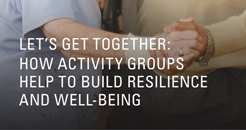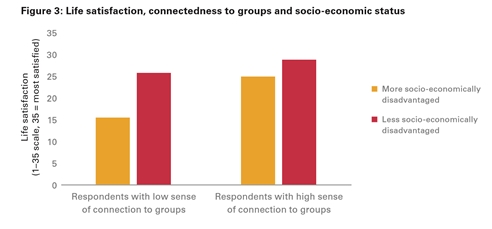The impact of activity groups
groups
Research by CUF and University of Queensland
The Church Urban Fund have published research in a report 'Let's Get Together: How Activity Groups Help Build Resilience and Well-being' on the impact on resilience, health and well-being of membership of activity groups such as lunch clubs, choirs, etc., organised and facilitated by churches, faith-based organisations and community groups. Resilience is defined as having the capacity to respond to and recover quickly from difficulties.
They make the point that human beings are inherently social. Numerous studies have shown that we are healthier, happier and live longer when we feel connected to others and that a lack of relationships poses a significant risk to our physical and mental health. Studies show that social isolation can be as damaging to our bodies as smoking 15 cigarettes a day and that lonely people have a 64% increased chance of developing dementia.
There is also a strong and well-documented relationship between social isolation and poverty. People who are materially deprived are more likely to become socially isolated and this isolation results in people being at greater risk of experiencing mental and physical health problems.
A growing body of research shows that our interactions with groups are particularly significant. When these groups offer a positive source of identity and support, they can help to build well-being by giving people a greater sense of control, improving self-esteem and protecting health.
The key findings of the research were, in summary:
-
People with a high sense of connection to groups reported significantly better life satisfaction and social support than those who felt less connected to groups.
-
This effect was greatest for those experiencing greater socio-economic disadvantage - see Figure 3 below.

All this suggests that access to, and participation in, groups such as lunch clubs, exercise classes, craft activities and games groups may be important in enabling people to develop supportive relationships that help them navigate difficult life circumstances. This is especially so for people experiencing poverty e.g. debt.
It demonstrates the value of such regular group activities in the local church.
Download the full report here.
Retweet about this article:
From research by CUF, 10/04/2017